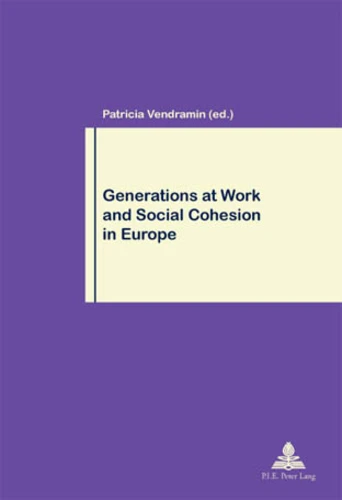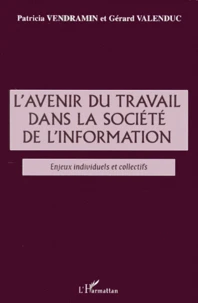Generations at Work and Social Cohesion in Europe
Par :Formats :
- Paiement en ligne :
- Livraison à domicile ou en point Mondial Relay estimée à partir du 7 janvierCet article sera commandé chez un fournisseur et vous sera envoyé 21 jours après la date de votre commande.
- Retrait Click and Collect en magasin gratuit
- Livraison à domicile ou en point Mondial Relay estimée à partir du 7 janvier
- Nombre de pages324
- PrésentationBroché
- Poids0.441 kg
- Dimensions22,0 cm × 15,0 cm × 1,7 cm
- ISBN90-5201-647-X
- EAN9789052016474
- Date de parution22/11/2006
- CollectionPLG.SOC.SCIENCE
- ÉditeurPeter Lang AG
Résumé
Work has always been and remains a powerful integrator in society. It provides places, duties and rights and classifies individuals on a scale of social prestige. Over a long period of time, however, the meaning of work has changed. It has become more diversified and it is now a matter for high expectations, of different kinds – instrumental, social, symbolic – that do not replace each other. In post-industrial societies, work and identities are still strongly intertwined despite a progressive distance vis-à-vis work (if work is considered as a value per se).
Work remains a social integrator but it no longer has a hegemonic value. There is a generational component in these changes, both in the subjective meaning of work and in its objective conditions (status, trajectories, security, etc.). Do such generational differentiations unavoidably lead to fractures in social cohesion ? That is the key question of this book.
Work remains a social integrator but it no longer has a hegemonic value. There is a generational component in these changes, both in the subjective meaning of work and in its objective conditions (status, trajectories, security, etc.). Do such generational differentiations unavoidably lead to fractures in social cohesion ? That is the key question of this book.
Work has always been and remains a powerful integrator in society. It provides places, duties and rights and classifies individuals on a scale of social prestige. Over a long period of time, however, the meaning of work has changed. It has become more diversified and it is now a matter for high expectations, of different kinds – instrumental, social, symbolic – that do not replace each other. In post-industrial societies, work and identities are still strongly intertwined despite a progressive distance vis-à-vis work (if work is considered as a value per se).
Work remains a social integrator but it no longer has a hegemonic value. There is a generational component in these changes, both in the subjective meaning of work and in its objective conditions (status, trajectories, security, etc.). Do such generational differentiations unavoidably lead to fractures in social cohesion ? That is the key question of this book.
Work remains a social integrator but it no longer has a hegemonic value. There is a generational component in these changes, both in the subjective meaning of work and in its objective conditions (status, trajectories, security, etc.). Do such generational differentiations unavoidably lead to fractures in social cohesion ? That is the key question of this book.








